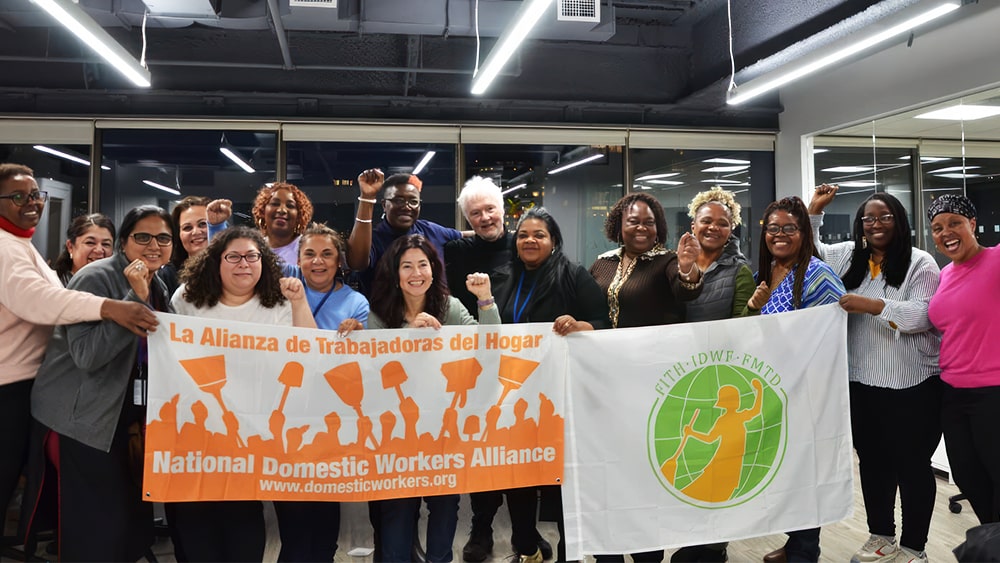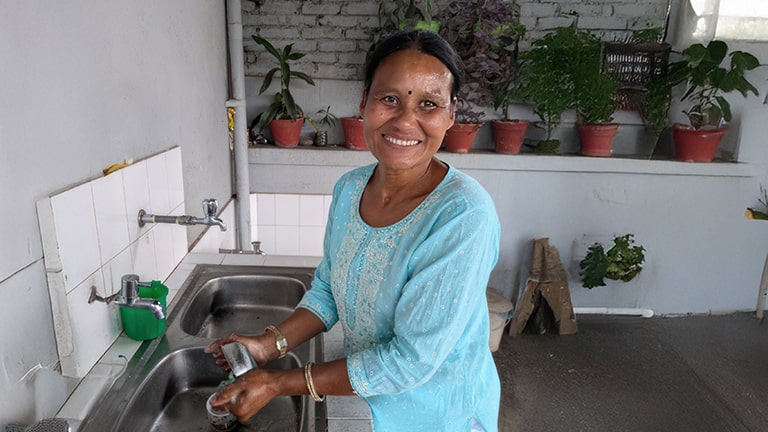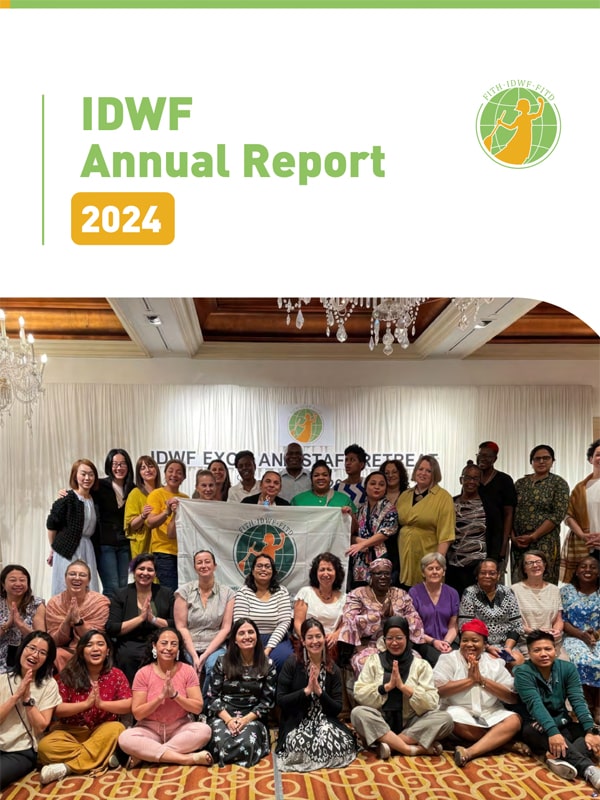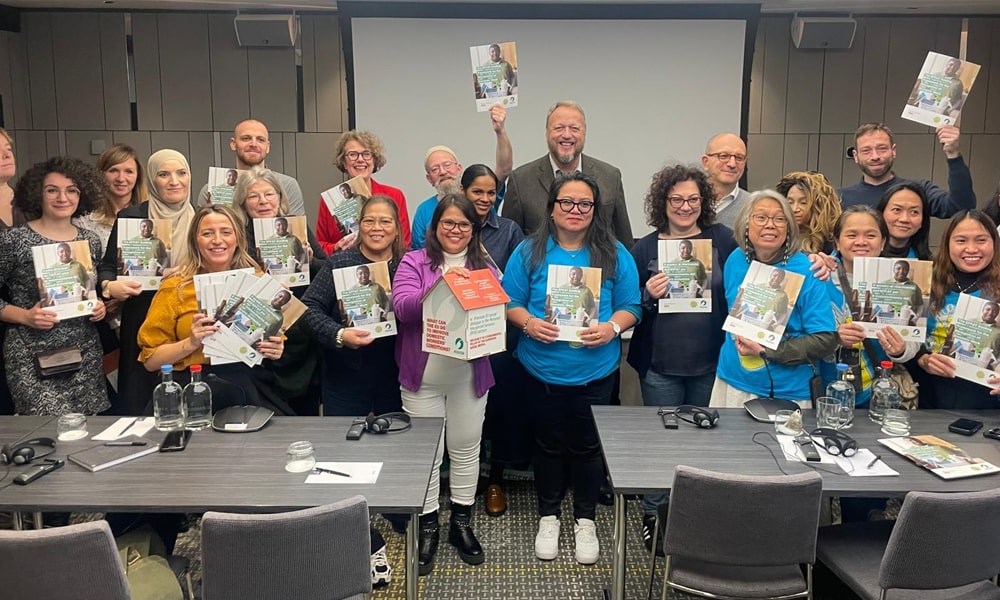
We greatly appreciate the support of Industri Energi and its International Advisor, Espen Løken, during the 68th edition of the UN Commission on the Status of Women (CSW68) held in New York from March 11 to 22.
You can read the article issued by Industri Energi about IDWF participation at CSW68 here (in Norwegian): https://industrienergi.no/nyhet/med-hushjelpene-i-new-york/ You can also find a translation of the article below.
Last year, IDWF and its former General Secretary, Elizabeth Tang, received the “Arthur Svensson International Award for Labour Rights,” established by Industri Energi in 2010: https://idwfed.org/events/idwf-and-elizabeth-tang-received-the-arthur-svensson-award-of-2023/
The prize money enabled IDWF to actively engage at CSW68 through a powerful delegation of leaders from different countries who successfully positioned domestic workers as the cornerstone of the care economy. A big thanks to Industri Energi, the Arthur Svensson Award, and their representative Espen Løken for making it happen!
With the domestic workers in New York
WORKING LIFE AND RIGHTS
APRIL 3, 2024
JOHNNY HÅVIK
Last year, the “Arthur Svensson International Prize for Trade Union Rights” went to the International Domestic Workers Federation (IDWF) and its General Secretary, Elizabeth Tang. IDWF used most of the prize money to actively engage during the UN Women’s Conference in New York in March this year. IE&FLT was there to show solidarity and follow up on the award winner.
IDWF works to improve conditions for the 75 million workers in the world who are employed in private homes. These domestic workers, childcare providers, cooks and cleaners are a group that very often have no rights, are unorganized and have no one to protect them. Very often they are poorly paid and subject to harassment and violence. It is also a group that is difficult to organize, as they often work alone. IDWF has managed to organize 670,000 of them, but depends on financial support and solidarity from others.
The money from the Arthur Svensson Prize was therefore a welcome contribution that allowed them to enable representatives from many different countries to participate and engage in the important Commission on the Status of Women (CSW68), the largest annual UN gathering on gender equality and women’s empowerment, which was held from March 11 to 22.
4,800 representatives from civil society around the world attended the conference, including many from the trade union movement. This year’s main theme was “Accelerating the achievement of gender equality and the empowerment of all women and girls by addressing poverty and strengthening institutions and financing with a gender perspective”.
Over the course of two weeks, IDWF delegates from countries such as Argentina, Jamaica, India, Bangladesh, the Dominican Republic and the USA actively participated in events, networking and advocating for the rights of domestic workers. The highlight was the organization’s own event with the theme “Centering decent work for domestic workers in the care economy”.
They themselves summarize the participation as a success. The delegates helped to highlight domestic workers as the backbone of the care economy in the world and place domestic workers’ priorities, demands, rights and needs on the global care agenda.
Espen Løken, who is responsible for the union’s work with the Arthur Svensson Award, attended the conference for a few days and had meetings with the IDWF delegation to show support and as part of the follow-up we do with all award winners. He says that their commitment and activity during these days was impressive – not least the unity and spirit they showed. Along the way, there was also time for a social and professional meeting with the domestic workers’ organization in New York.
The International Trade Union Confederation (ITUC) also summarizes the conference as successful, even though there is still a long way to go. The ITUC highlights in particular that there was agreement that statutory or negotiated minimum wages are crucial to combating poverty among women, and that there must be a transition from informal to formal work and universal social protection. Furthermore, the importance of public investment in the care economy, social infrastructure, including universal social services and support based on gender equality and non-discrimination, to address the issue of unpaid care work and promote decent work for women.
You can read more about the Arthur Svensson Award here: https://www.svenssonstiftelsen.com/
and about why IDWF received the Arthur Svensson Award here: https://www.svenssonstiftelsen.com/prisvinnere





